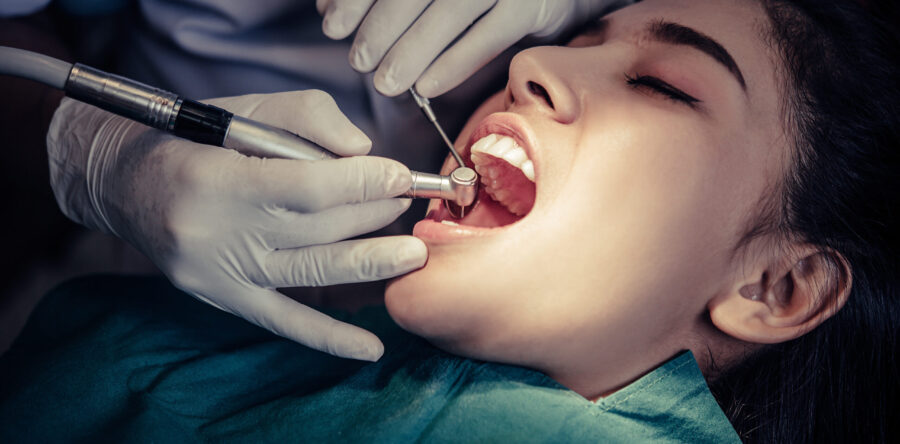A sudden toothache, a cracked tooth, or a knocked-out tooth can feel overwhelming. In those critical moments, knowing what to do—and where to go—can make all the difference. At Alliance Dental Care, we understand that dental emergencies can’t wait. Our mission is not only to treat the problem but also to guide you calmly through each step while ensuring fast, effective relief.
What Qualifies as a Dental Emergency?
A dental emergency involves an acute issue that demands immediate attention to relieve pain, stop infection, or save a tooth. Common examples include:
- Severe, persistent toothache unrelieved by over-the-counter medication
- Cracked or broken teeth exposing the pulp or nerve
- Knocked-out (avulsed) teeth
- Dental abscesses or swelling accompanied by fever
- Uncontrolled bleeding or trauma to gums, tongue, or cheeks
- Objects lodged between teeth causing pain or tissue injury
What to Do Before You Reach the Dentist
Quick first-aid steps can help protect your oral health while you wait for emergency care:
- Rinse with warm salt water to reduce bacteria and soothe irritation.
- Apply a cold compress to your cheek to reduce swelling.
- Preserve a knocked-out tooth by placing it in milk or saline—never let it dry out.
- Use pain relief medication like ibuprofen (if safe for you).
- Avoid aspirin or heat on the gums, which can worsen inflammation.
Prompt, correct action can mean the difference between saving or losing a tooth.
Why Emergency Dental Care Requires Specialized Expertise
Emergency dentistry is more than routine care—it requires precision, experience, and quick decision-making. A skilled emergency dentist must have:
- Diagnostic speed to identify infections, fractures, or nerve damage.
- Advanced tools like X-rays and surgical instruments ready for urgent use.
- Expertise in procedures such as root canals, splinting, and extractions.
- Pain management and sedation to keep patients comfortable.
- Comprehensive aftercare to promote healing and prevent recurrence.
When choosing an emergency dentist, look for clinics with flexible hours, same-day appointments, and transparent pricing—like Alliance Dental Care.
How Alliance Dental Care Handles Emergencies
We’ve built our emergency dental services around three principles: speed, comfort, and trust.
- 24/7 emergency triage: Call us anytime for immediate guidance.
- Priority scheduling: We reserve slots daily for urgent cases.
- Transparent pricing: No hidden fees or surprise charges.
- Personalized communication: We explain every step clearly before and after treatment.
- Dedicated follow-ups: To ensure complete healing and lasting results.
At Alliance Dental Care, we treat more than just teeth—we care for people. Our compassionate approach ensures you feel safe, supported, and confident throughout your treatment.
What Happens During an Emergency Visit
Here’s what to expect when you arrive for emergency dental care:
| Step | What Happens | Why It Matters |
| Intake & history | We review your symptoms and medical background | Ensures accurate diagnosis and safe care |
| Clinical exam & imaging | X-rays and visual assessment | Detects hidden damage or infection |
| Pain control | Local anesthesia or mild sedation | Keeps you comfortable during treatment |
| Urgent procedure | Root canal, extraction, or splinting | Stops progression and preserves oral health |
| Temporary restoration | Covers exposed nerves or damaged surfaces | Reduces pain and sensitivity |
| Post-op care | Medication, hygiene, and recovery instructions | Supports healing |
| Follow-up visit | Check healing and complete restoration | Ensures long-term success |
Preventing Future Dental Emergencies
While accidents happen, you can reduce your risk with a few proactive steps:
- Wear a mouthguard during sports.
- Avoid biting on hard foods or objects like ice or pens.
- Treat small cracks or decay early.
- Maintain regular dental checkups.
- Practice good daily oral hygiene.
Frequently Asked Questions
Q: How soon should I see a dentist after a tooth is knocked out?
A: Ideally within 30–60 minutes. The sooner the tooth is reimplanted, the better the chances of saving it.
Q: Is every toothache an emergency?
A: Not all, but persistent pain—especially with swelling, fever, or sensitivity—needs prompt evaluation.
Q: Does insurance cover emergency dental visits?
A: Many plans cover emergency procedures but not all follow-up treatments. We’ll help clarify coverage before care begins.
Q: Can I drive myself if I’ve suffered jaw trauma?
A: It’s safer to arrange transportation, especially if movement or pain interferes with driving.
Q: How much does emergency dental care cost?
A: Costs depend on the procedure and severity. At Alliance Dental Care, we provide clear estimates before treatment begins.
Final Thoughts
When a dental emergency strikes, every minute counts—but with the right knowledge and support, you can act confidently. Knowing what to do, where to go, and who to trust ensures faster recovery and better outcomes.
At Alliance Dental Care, we’re always ready to help—combining clinical precision with compassionate care. Whether you found us through Google search, local maps, or voice assistants, we’re here when you need us most.
Your comfort and safety are our top priorities—because at Alliance Dental Care, your smile matters even in emergencies.

